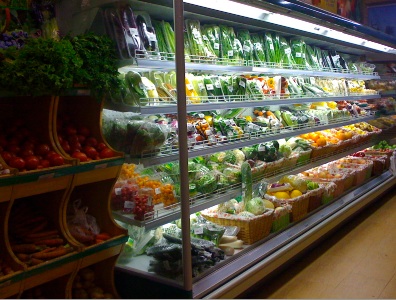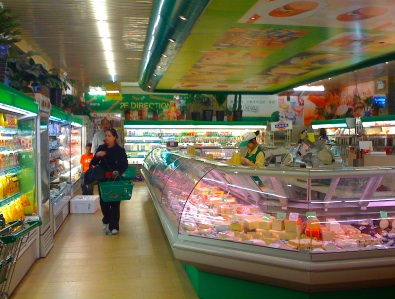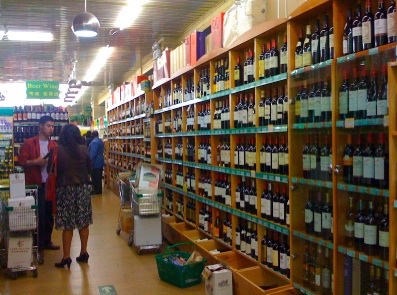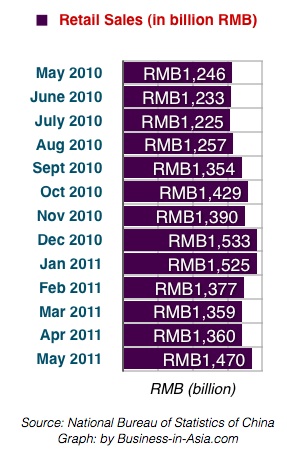
Good Opportunity for Foreign Retailers
in China's Consumer Goods Market
|
China's Retail Sales of Consumer Goods  China's consumer spending continued to grow strongly as retail sales of consumer goods rose 17.1% in April and 16.9% in May 2011 from a year ago. The figures were released by the National Bureau of Statistics (NBS) and reported by Xinhua News. In April, China's retail sales totaled 1.36 trillion yuan ($210.2 billion ). Urban retail sales increased 17.3% year on year, faster than the 16.3% rise in rural areas said the NBS. Besides the retail sales record, China's April CPI was up 5.3%, PPI up 6.8% and Industrial output up 13.4%, according to the paper. Good Opportunity for foreign retailers   Pictures: by
Business-in-Asia.com
Today, in China's large cities like Beijing, Shanghai and Guangzhou, one can see many high-end specialty supermarkets specializing in imported and organic products. These new stores, all owned and operated by foreign retail chains, have rapidly gained popularity not only among expatriates, but also among locals especially the young and rich, who have been worried by a spate of food scandals, reported China Daily. It is estimated by some industry insiders that the primary investment, including high rent for prime locations, is four to five times more than what it costs for an ordinary supermarket.
Not all retailers are successful US retailer Best Buy has closed all of its nine brand-named stores recently. Home Depot, another US retailer, announced in January 2011 it was closing its last Beijing store, leaving it with just seven stores in the rest of the country, reported China Daily. The Taste, a subsidiary high-end supermarket brand from Hutchison Whampoa, controlled by Li Ka-shing, Hong Kong's richest man, has not been regarded a success after opening in Shanghai in 2004. This is despite generous support from headquarters and its well-established reputation in Hong Kong. "There is an intense level of competition. Getting the right formula for the China market is critical", said an expert to the paper. The rate of inflation in China is also a concern. It is set to rise further in the first-half of 2011, according to the National Development and Reform Commission In May 2011, annual consumer price inflation hit 5.5% and is forecasted to increase next month and into the fall. |


